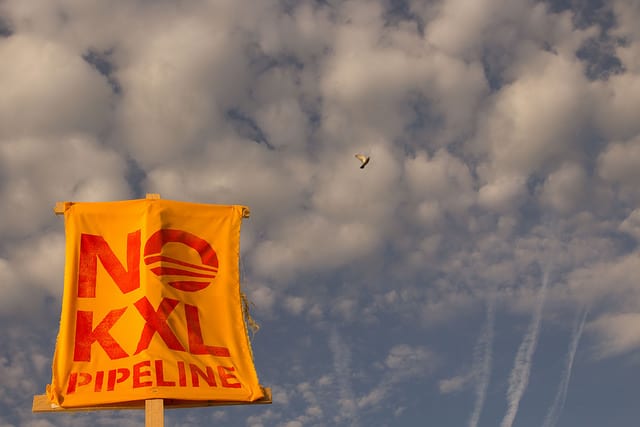TransCanada proposed building the Keystone XL pipeline to take dirty tar sands oil from Canada to the Gulf of Mexico in 2008 — but Friends of the Earth and our allies have been able to stop the pipeline from being completed for almost a decade.
If constructed, Keystone XL would pose a serious threat to Indigenous communities and sacred cultural sites. It would pollute rivers, streams, and wetlands that millions of people and endangered species rely on. It would worsen climate change and harm public health. And, based on research from federal officials, it would spill oil up to 100 times during its lifetime.
Friends of the Earth led the charge in opposing the pipeline when Canadian oil company TransCanada first proposed it. And, because so many passionate people have stood strong against Big Oil, Keystone XL has become perhaps the world’s most famous pipeline.
Friends of the Earth worked to expose the environmental impacts the pipeline would have, as well as the conflicts of interest that were pushing it forward. We joined with activists across the country and world to resist the pipeline. We worked with ranchers in Nebraska to protect their farmland from Big Oil and with Indigenous peoples to protect their heritage.
In 2015, President Obama denied TransCanada its permit, stopping Keystone XL in its tracks. One of the first moves by Trump when he took office was to reward Big Oil for their support by undoing Obama’s rejection.
Following Trump’s decision, we took the fight to the courts. We worked with other environmental and landowner groups to challenge the State Department’s inadequate and outdated Environmental Impact Statement. We also continue to fight in Nebraska, which recently required TransCanada to alter the route.
A Montana judge ruled that the Trump administration must release hidden Keystone XL documents that could bring damaging information to light.
A decade later Keystone XL has not been built, and Friends of the Earth remains committed to resisting this dirty pipeline.

